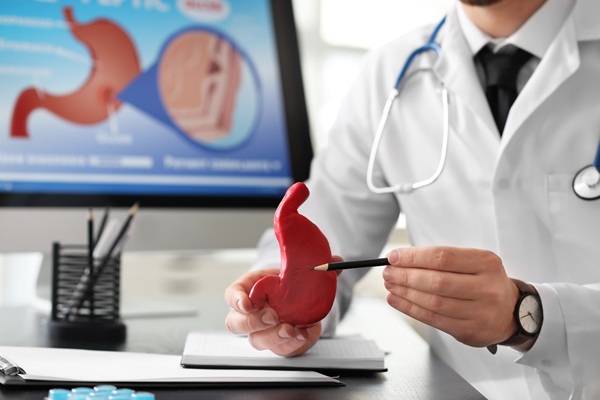A Lymph Node Biopsy Helps When Making a Lymphoma Diagnosis

A lymph node biopsy provides critical information to a physician and patient regarding the detection of cancer cells within the lymph nodes. If cancer cells are present, a lymphoma diagnosis is a possibility. While cancer cells are not always present, the doctor will perform a biopsy to know for sure.
A biopsy provides information about whether a patient may have cancer and gives the doctor a more precise diagnosis based on the type of cancer that could be present, leading to the best possible treatment option.
What are lymph nodes?
Lymph nodes are a part of the lymphatic system within the immune system. They filter lymph, a colorless fluid made up of white blood cells. In the human body, lymph nodes are in locations like behind both ears and in the neck, underarms, chest, belly, and the inside of the thighs (in the groin area). If lymph nodes are unhealthy, they typically become tender to the touch and swollen.
How is a lymph node biopsy performed?
A patient can have a lymph node biopsy taken at outpatient centers or hospitals. The healthcare professional numbs the area for the biopsy with a local anesthetic to ensure that the patient does not feel any discomfort. If the patient is anxious or the doctor feels that it is necessary, mild sedation may also be a possibility. A small incision is made over the lymph node in question, and the doctor removes a small piece of the lymph node.
In some cases, removing the entire lymph node is necessary, especially if it is enlarged or tumorous, but this is rare. After the biopsy, doctors examine the piece under a microscope. This way, they can determine if cancerous cells are present. While testing for cancer, tests for other infections or diseases that could be causing problems with the patient's immune system will also be done.
What is lymphoma?
According to the Lymphoma Research Foundation, lymphoma is the most common blood cancer in adults, and it is the third most common in children. It is a type of cancer that starts in lymphocytes, which are types of small white blood cells. There are two main types of lymphoma: Hodgkin's lymphoma (or Hodgkin's disease) and non-Hodgkin's lymphoma. In the simplest terms, if the body has a specific type of abnormal cell, called a Reed-Sternberg cell, the cancer is Hodgkin's lymphoma. Non-Hodgkin's lymphoma is much more common. Both types of lymphoma and their subsets, of which there are many, are treatable.
The symptoms most commonly associated with lymphoma are enlarged or tumorous lymph nodes, fatigue, loss of appetite, shortness of breath, and weight loss. Early detection of cancer is critical for treatment. Therefore, a biopsy is sometimes requested when patients display the listed symptoms.
FAQs about lymph node biopsy and lymphoma
The following are common questions asked by patients who are receiving a lymph node biopsy for the first time.
How long does it take to get biopsy results for lymphoma?
Diagnosing lymphoma can be challenging. To ensure the most accurate results possible, multiple tests are usually performed in the medical laboratory. It can take up to two weeks for a patient to receive their biopsy results for lymphoma.
How accurate is a biopsy for lymphoma?
Biopsy results for lymphoma are relatively accurate. In fact, according to the American Journal of Clinical Pathology, they are up to 87% accurate. Medical labs usually run multiple tests to ensure the most accurate results possible. In uncommon instances (less than 10%), molecular genetic testing may be required to ensure accurate results.
How fast can lymphoma spread?
Unfortunately, lymphoma can grow rapidly, so the earlier a diagnosis can be made, the better. With early intervention, lymphoma is often treatable.
What is the survival rate of lymphoma?
This depends on the type of lymphoma. According to the American Cancer Society, patients who are diagnosed with indolent non-Hodgkin's lymphoma often live for more than 20 years after treatment. The survival rate for more aggressive types of lymphomas is not as ideal, though more than 60% have a survival rate of at least five years after diagnosis.
What can I do to prepare for my diagnosis?
There are not usually any specific preparations that are necessary for a lymph node biopsy. It can help to arrange for someone to come with the patient and drive them if they are feeling nervous about their visit.
Learn more by making an appointment
To learn more about lymphoma and how it could affect your health, schedule a visit to our office. Make an appointment today to receive a lymph node biopsy to determine your diagnosis and the best treatments going forward.
For more information or to schedule an appointment with Lindenberg Cancer & Hematology Center, request an appointment in our Marlton dental office here: https://lindenbergcancer.com. Or call us at (856) 475-0876.
Check out what others are saying about our services on Yelp: Lymph Node Biopsy in Marlton, NJ.
Recent Posts
Gynecological cancer treatments target cancers that affect the female reproductive organs, such as ovarian, uterine, cervical, vaginal, and vulvar cancers. Fortunately, there have been significant medical advances in cancer treatment that have greatly improved patient outcomes, allowing oncologists to adjust therapies to fit each patient's needs and overall health. These targeted treatments work better than…
Gastrointestinal cancer treatment is a broad and evolving field focusing on cancers affecting the digestive tract, including the esophagus, stomach, pancreas, liver, small intestine, colon, and rectum. Each area may involve different approaches based on the cancer's stage, location, and specific genetic factors. Oncologists often coordinate with surgeons, radiologists, and other specialists to create a…
Finding a hematologist near me is an important step when facing symptoms that may indicate a blood disorder or a more serious underlying condition. While not every unusual symptom warrants a referral, recognizing certain signs early can lead to more effective treatment and improved outcomes. Knowing when a hematologist’s expertise is necessary can help patients…
Colon cancer treatment often involves a combination of therapies to destroy cancer cells while protecting overall health. Each person’s treatment plan differs and depends on several factors. Though colon cancer treatment can seem complicated and overwhelming, understanding what to expect can help patients feel more at ease and make informed decisions about their health.Before treatment…


